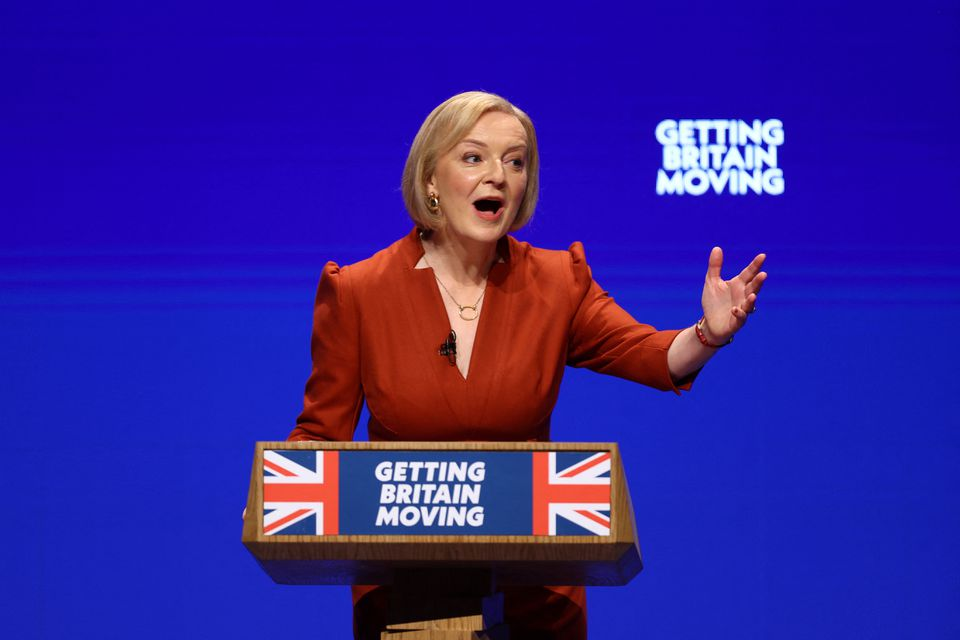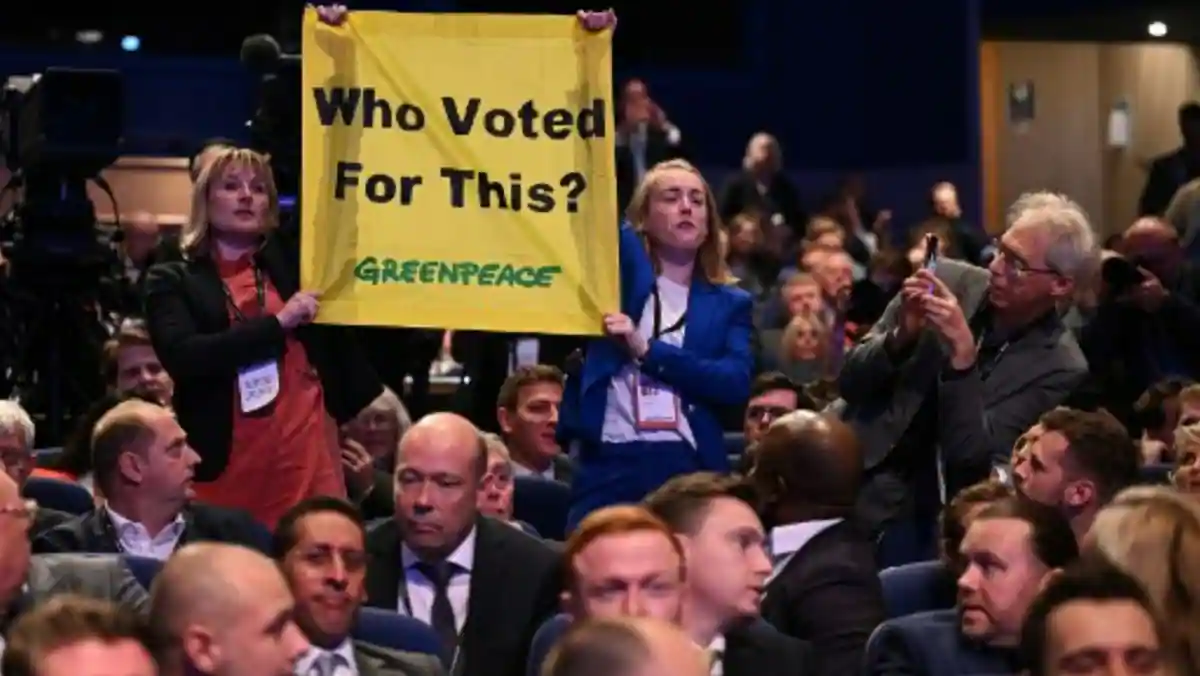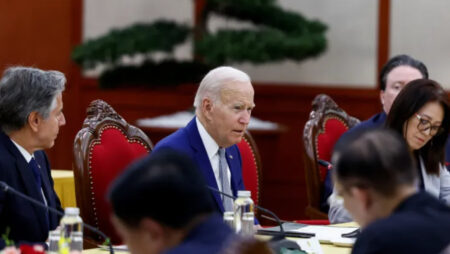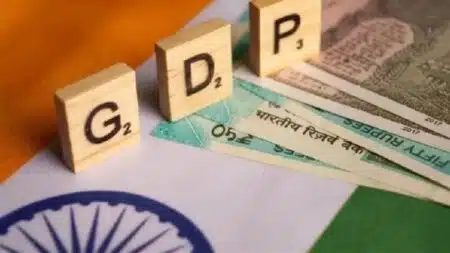
Source: Reuters
Truss’s words of Promise
In an effort to regain control over a party in upheaval, Prime Minister Liz Truss appealed to her Conservative Party on Wednesday, promising to guide Britain through “stormy days” and improve a stagnating economy.
Truss sought to reassure her party, the public, and investors that her strategy was the best approach to rekindle growth as she spoke to Conservative legislators and members at an annual conference marred by internal squabbling and policy disarray.
The prime minister’s critique of what she dubbed “the anti-growth coalition” was met with thunderous applause after protesters brandishing a banner demanding “who voted for this?” caused an early disruption.
Many in the audience felt that Truss, who has acknowledged that she is not the best communicator, had done a respectable job at the time when she is under pressure from “certain snakes in the party” who are undermining her goals.
She may have given herself a bit more time to reestablish herself over a party that is becoming more and more fractured and anxious about surveys that indicate it may be all but eliminated in a general election. Conservative legislators openly debate whether she ought to be in charge.
“I’m ready to make difficult decisions. You can rely on me to go the extra mile. There is no room for the status quo, “She informed the party faithful in Birmingham, a city in the centre of England.
“We come together at a critical juncture for the UK. These are threatening days. We must act now. I’m adamant about getting Britain moving, getting us through the storm, and getting us back on solid ground.”
When Truss launched a new economic strategy that caused an investor confidence crisis, what was previously anticipated to be her moment of triumph after becoming prime minister on September 6 became a personal nightmare.
Her effort to increase government borrowing and slash taxes by 45 billion pounds ($51 billion) sent markets into a spiral and put her party at risk of election failure.
In stark contrast to the discipline on display last week at a conference of the opposition Labour Party, which now holds a clear lead in the opinion polls, Truss was forced to reverse the scrapping of the top rate of tax and was then openly challenged by lawmakers and ministers over other policy areas.
Grandmother Khatija Meaby, 75, from London, said Truss “is not going to be a dynamic speaker. She is correct, though, that we need to expand the economy “.
Truss had appeared, according to Dimabo Wolseley, a 51-year-old barrister from the capital and another conference participant “Despite the “snakes in the party,” she was “quite confident. They ought to be expelled if they don’t stop causing problems.”
Famous words- “Who voted for this?”

Source: Wion
On Wednesday, two Greenpeace climate activists held up a placard that read, “Who voted for this?” in reference to Truss’s drastically different approach from that of her predecessor Boris Johnson, who won the most recent election in 2019. Truss, on the other hand, was solely picked by party members.
Truss asserted that tax reductions are morally and economically appropriate while stating that the problem at hand is “immense”.As the government looks for methods to pay for the overall fiscal programme, certain members of her party are now more inclined to fight spending cuts as a result of her tax U-turn.
That runs the risk of diluting her “radical” programme as well as increasing the likelihood of an early election.
Truss told the gathering she wanted to create a “new Britain for the new era” after entering the conference room to the music of M People’s “Moving On UP” and a standing ovation.
“How we divide a little economic pie has dominated political discussion for far too long. Instead, we must expand the pie so that each person receives a larger piece “She spoke.
“That is why I am committed to adopt a fresh strategy and free us from this cycle of high taxes and slow economic growth.”
In a time when millions of households are struggling to cover the cost of rising prices, some lawmakers worry that Truss would back out of a promise to increase welfare payments in step with inflation.
Ministers claim they have not yet made a decision and must wait until later this month to consider economic statistics.
Even though the bond market has generally stabilised since the Bank of England intervened to support it, even after borrowing costs skyrocketed, surveys now indicate that the Conservatives will lose the next election.
As Truss spoke, the pound lost ground versus the dollar, capping a six-day rally while maintaining a healthy distance from previous lows.
The most well-known pollster in Britain, John Curtice, stated before the speech that the Conservatives needed to admit they were “in serious, deep political trouble” because Labour now had an average lead of 25 percentage points.
Click here to hear her full speech:












